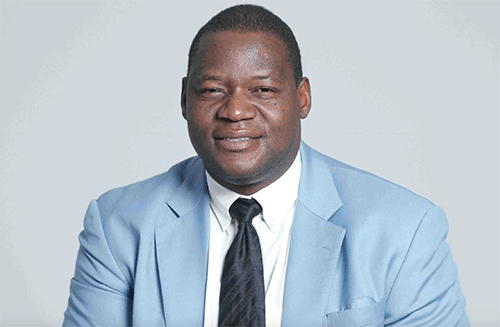Dr Matthias Ngwangwama
Many are called, but few are chosen. But what makes some chosen and others not? It is about the attitude of one’s heart towards assignments and responsibilities given. Some are chosen because they bring “fat portions” from their flock, while others only bring “some of the fruits of the soil” as offerings.
This means then that those who are chosen try to give their best, and serve others with wholehearted devotion and with a willing mind. On the contrary, those who are not chosen often offer half-hearted and minimal contributions, and frequently have to be “forced” in their assignments and responsibilities.
I only met the late president in person twice.
All I know about him is from his public appearances, mostly from media reports and attributions. Our late president seems to have always been chosen for big and difficult assignments. As always is the case, someone’s achievements are hidden from them and others while they are living, but their greatness and successes are openly revealed when their spirits depart and are no more.
Perhaps it so happens to keep a person in an “unknowing state” while living so that the person can rise and perfect true works of love.
Also, it is necessary to keep them in an “unknowing state” about their achievements and successes in order to protect them from pride and human boasting.
Geingob was a man chosen for big occasions and assignments.
Of course, he did not carry out these assignments single-handedly, but as a collective with others. However, leaders are rewarded for the burdens they carry. In other words, one of their key assignments is to carry the burden of leadership.
Whilst their followers sleep peacefully during the night, leaders quite often have to wrestle and agonise, tossing and turning throughout the night, worrying about their assignments and other pressing problems. Arguably, below are some of late president Geingob’s foremost burdens that he very often had to wrestle with and agonise about:
Oversight over UNIN
When we were studying at the Academy for tertiary education, the forerunner of what is today known as the Namibia University of Science and Technology (NUST) and the University of Namibia (Unam), in 1989 to be specific, we used to look down on the United Nations Institute of Namibia (UNIN) as an academic institution of lower quality. On their turn, UNIN students used to ridicule the Academy as a bogus institution and a joke. However, there was a clear purpose for establishing UNIN that, perhaps, was hidden at that time, but became apparent with Namibia’s independence. It was of course not a perfect institution, but there was a noble purpose for establishing it. For our late president to be assigned as the director of UNIN at that point in time was a big assignment, and clearly a burden.
Leading exiles back home
The episode of the Namibian exiles returning home to their motherland in June 1989 looks easy in hindsight and on paper. However, it was an unheralded moment and a difficult exercise at the time. The South African security forces and apparatchiks were not “meek lambs”, as it would later seem to be. They were ruthless in 1989, and could kill people with impunity. Thus, to be assigned the responsibility to lead fellow exiles back home and to spearhead a never-seen-before election campaign in a hostile environment, is not child’s play. Only the brave, and the chosen, can be assigned for those types of assignments. Many are called, but few are chosen.
Chairperson of the Constituent Assembly
As we have now come to understand, the writing and adoption of the Namibian Constitution was a break or built moment. It is only now that it is made manifest what important purpose a constitution serves in a country. We observed it in our times, on Sunday 4 February 2024, with the smooth change in executive power necessitated by the death of a sitting president. Those are the moments one clearly realises the criticality of a practical constitution.
Leading through Covid
Covid-19 was terrible and painful. In fact, we might have done a great disservice by not acknowledging the important role the leaders – all leaders, political, business and religious – played during the Covid-19 crisis. Nobody, especially leaders, knew exactly what to do during that period. As the first citizen and the number one leader, late president Geingob presided over that painful episode and difficult assignment and burden.
Go well and smiling big, our beloved former president Hage Geingob.
Happy at last that you are going to meet your Maker face-to-face, beaming.
Your due reward is awaiting you after all the hard work and restless toiling, and as angels, saints and ancestors rejoice as they welcome you to eternity.
Look back and wish us well, us mere mortals still toiling on this earth.
*Dr Matthias Ngwangwama is a Namibian business management academic and practitioner. He is the managing director of Namibia Wildlife Resorts Limited (NWR), but writes in his personal capacity.


